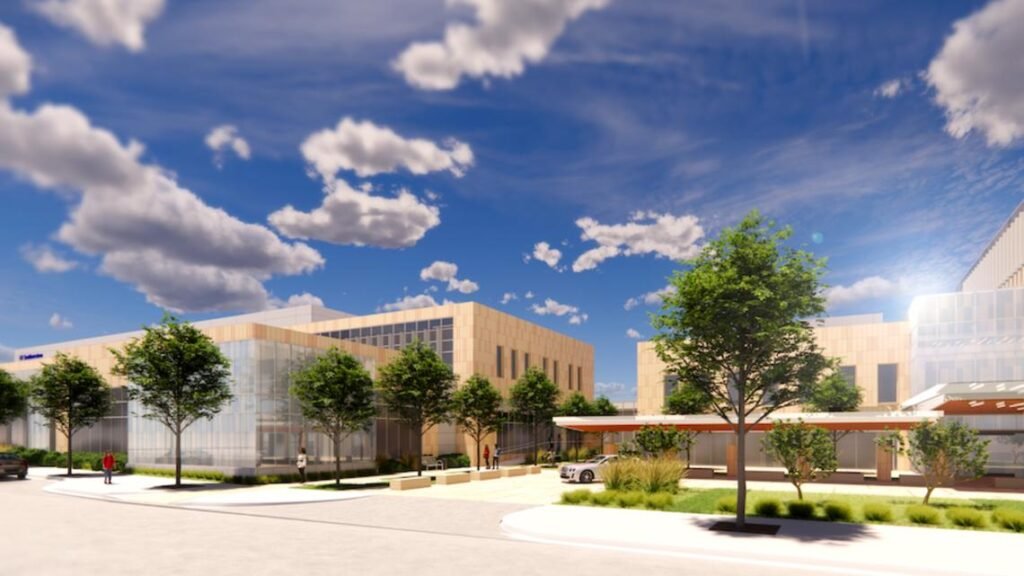Many of the facilities that recently opened or are in the works in North Texas are in some of the parts of the metroplex that are seeing the most rapid growth.
DALLAS — North Texas’ population boom means more hospitals and medical facilities are needed to meet the region’s healthcare needs.
As a result, new medical facilities are recently opened or are in the works across North Texas. Many of the facilities are in parts of the metroplex seeing the most rapid growth. Full-scale hospitals are recently opened or in the works in Collin and Kaufman counties, for example.
The population of Kaufman County, east of Dallas, spiked 26.7% between January 2020 and Jan. 1, 2024, to 184,070, making it the fastest-growing place in Texas during that time, the Dallas Business Journal reports.
Collin County ranked among the fastest-growing counties in the country, having grown 13.6% between 2020 and 2024 to 1,209,295, according to the Dallas Business Journal.
All of those new North Texans need healthcare services.
Here’s a look at the different facilities major health systems have recently opened or have coming soon to North Texas, and how they choose where and what type of facilities to build:
Baylor Scott & White
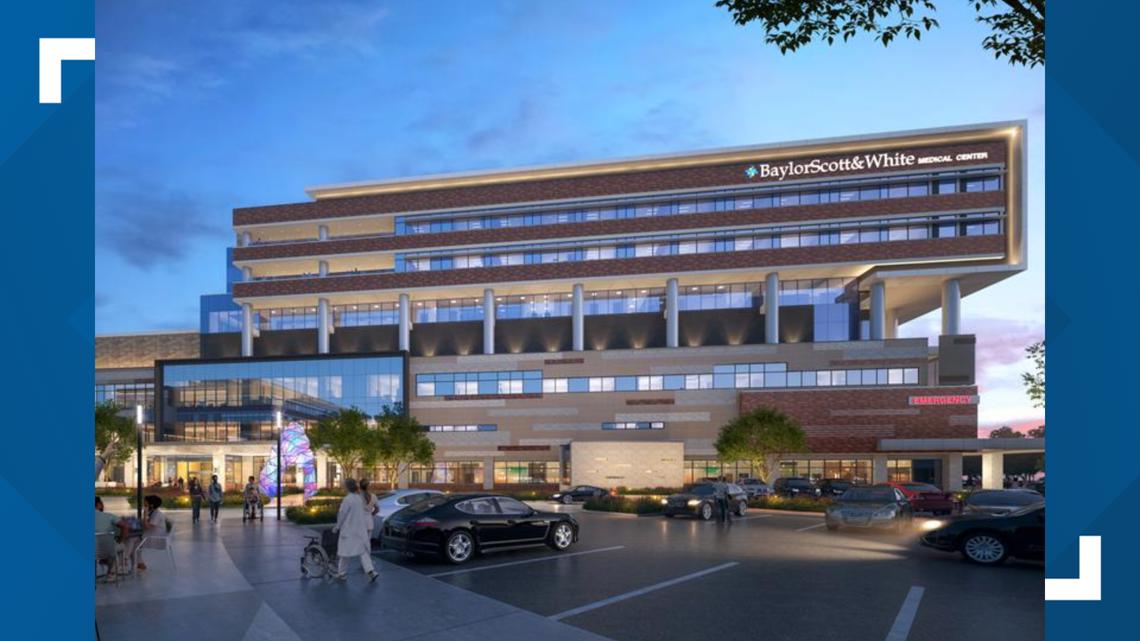
Baylor Scott & White Health, the largest nonprofit health system in Texas, is set to open Baylor Scott & White Medical Center – Frisco at PGA Parkway, a new 340,000-square-foot, 84-bed hospital, later this summer.
The new facility will offer emergency and trauma care, cardiovascular care, women’s healthcare, surgical facilities, imaging services, and more. Construction on the project began in 2023, and it’s expected to be completed this summer.
“Baylor Scott & White is committed to expanding access to high-quality care built on a legacy of clinical excellence. As North Texas continues to grow, this new medical center is poised to meet the needs of a thriving region,” said Baylor Scott & White Medical Center – Frisco at PGA Parkway President Ryan Gebhart.
Baylor Scott & White – Frisco at PGA Parkway chief medical officer Eric Beshires said the new facility was designed to continue to meet the needs of North Texas into the future.
“This campus is built with North Texas’s future in mind, with deep expertise in inpatient and emergency care,” Beshires said. “As we enter our third decade of Baylor Scott & White’s service within the City of Frisco, we are committed to continuing to grow with the community to meet the changing needs of this area.”
Medical City

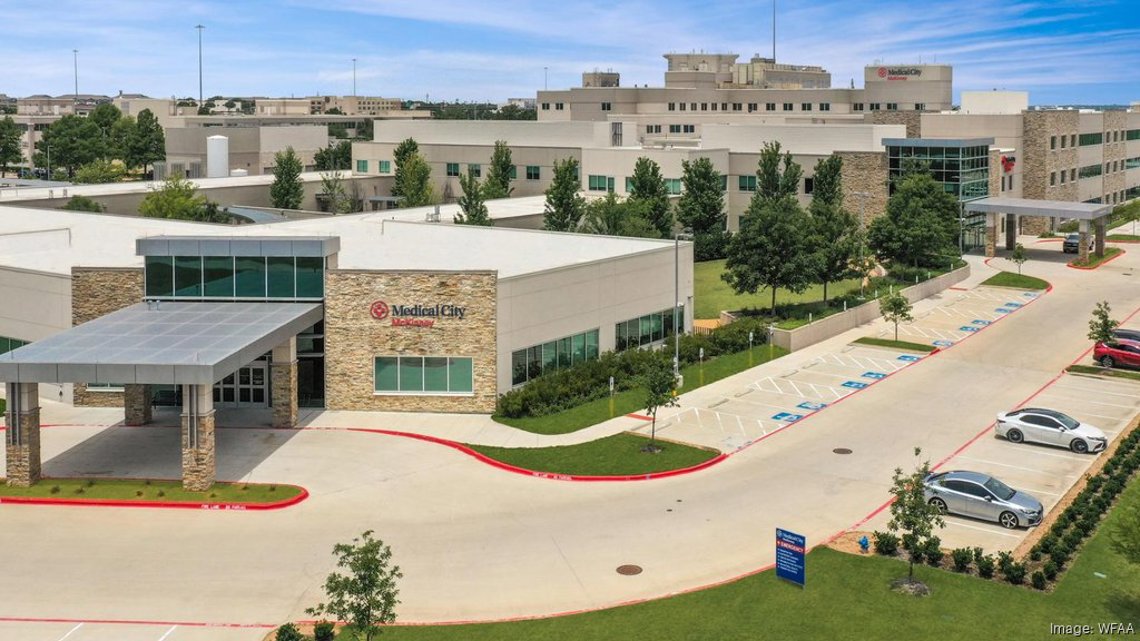
Medical City Healthcare has expansion projects in the works across the Dallas-Fort Worth metroplex, with a particular focus on fast-growing Collin County and Fort Worth, the 12th largest city in the country.
Fort Worth was one of two U.S. cities to surpass a population of 1 million residents last year, and added 23,442 residents from 2023 to 2024.
“As the North Texas region continues to grow and evolve, Medical City Healthcare is strategically expanding to ensure families have access to the essential services they need, including emergency care, mental healthcare, hospital services, and specialized programs,” Medical City spokesperson Janet St. James said. “Expansion is focused on underserved communities or areas experiencing rapid population growth, where we can make the greatest impact on community health and provide timely, expert and compassionate care close to home.”
In the last five years, Medical City says the health system has invested $1.7 billion-plus in everything from building acquisitions and expansion to facility enhancements and technology.
Medical City Mental Health & Wellness Center Alliance – a 65,000-square-foot, single-story hospital providing inpatient and outpatient services at 3100 Alliance Town Center in Fort Worth – opened in February to provide access to inpatient mental healthcare in the area.
In 2024, Medical City opened Medical City ER Garland, an 11,000 square-foot facility at 3318 W. Buckingham Road, that boasts private exam rooms, a trauma room, an onsite laboratory, imaging services, and more. That same year, Medical City bought Medical City Mental Health and Wellness Center Frisco at 5680 Frisco Square Boulevard and Medical City Sachse, which is a campus of Medical City Plano at 4750 President George Bush Highway that provides 24/7 emergency care.
Medical City acquired Medical City Decatur, a campus of Medical Center Denton at 609 Medical Center Drive, which is a full-service, acute care hospital with 150 beds, in 2023, “maintaining vital hospital access in a more rural community.”
This year, work is underway on a new, three-story patient tower at Medical City Arlington that will add 60 more patient care beds, bringing the total to 496. Additionally, the project will add eight private day surgery rooms, two neurosurgery operating rooms, two orthopedic surgery operating rooms, and a new main lobby with a coffee bar and other amenities. The new patient tower will have connectivity to Medical City Women’s Hospital Arlington. The new patient tower is set for completion later this year.
Medical City Fort Worth is adding four operating rooms and a new cardiac catheterization laboratory as part of a buildout of the facility’s second floor. That project is set to be completed later this year.
Medical City Heart Hospital in Dallas is adding three floors to provide a new cardiovascular intensive care unit, additional bed space, and more. The space will house the 28-bed cardiovascular intensive care unit, specially-equipped ICU beds for extracorporeal membrane oxygenation (ECMO), which is an advanced life support therapy for patients whose heart or lungs are not functioning properly, and shell space for additional beds in the future. The $60 million project is set for completion later this year.
Medical City McKinney is planning a three-story expansion that will add 28 more patient beds for a total of 357, include four operating rooms, a new post-anesthesia care unit, and additional space for day surgery.
Medical City Plano is expanding with 60 more patient beds, bringing the total there to 663. As part of the expansion, the hospital will also add three rooftop helipads, a three-story parking garage, and shell space for future patient beds.
Methodist Health System

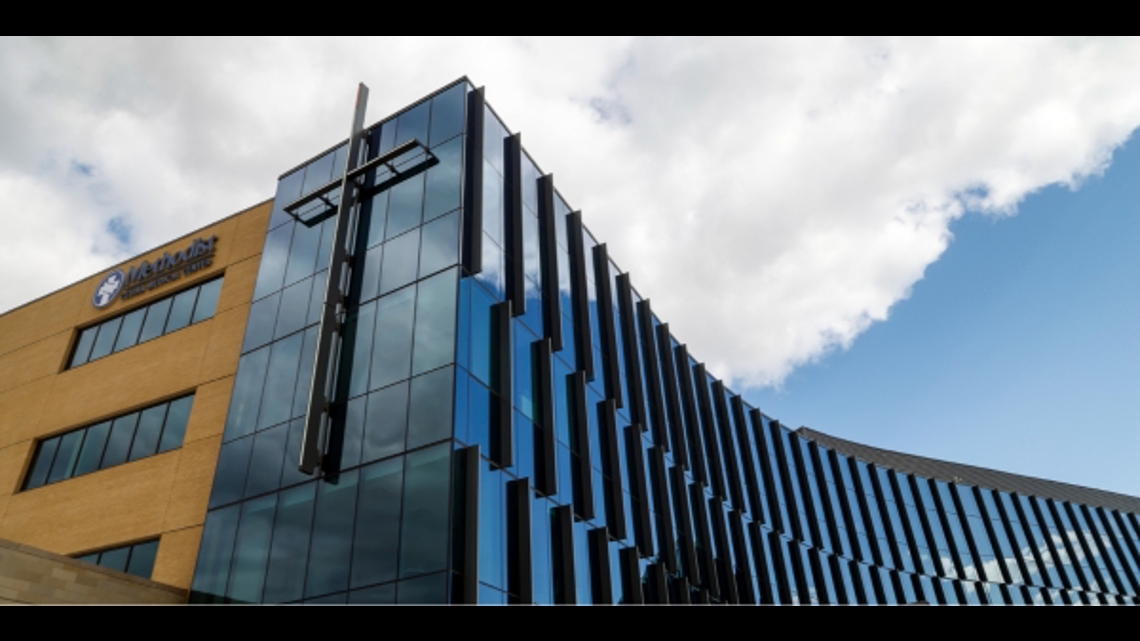
In March, Methodist Health opened Methodist Celina Medical Center, the first hospital in the rapidly growing Collin County city.
Celina, which is about 40 miles north of downtown Dallas, was the fastest-growing American city among cities and towns with a population of at least 20,000 between July 2022 and July 2023, according to the U.S Census Bureau.
The $237 million, 200,000-square-foot hospital facility offers a full slate of services, including cardiovascular care, orthopedics, and cancer treatment, as well as trauma and emergency care. The facility has 51 beds in all, with shell space to expand to 100, three operating rooms, and a cardiac catheterization lab.
“Celina, it took us 97 years to get here, but we’re darn glad we’re here,” said Chief Executive Officer James C. Scoggin, Jr. “We go where there’s need, and we meet that need. We run to it.”
Texas Health Resources

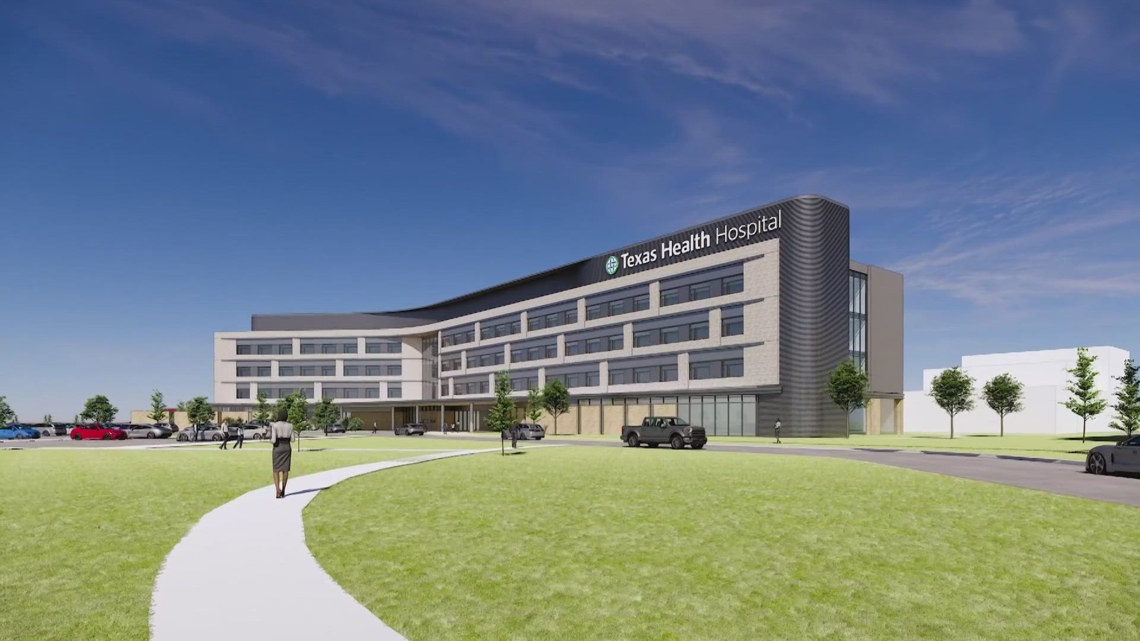
To help meet the increasing need for services in the area, Texas Health Resources is building the first full-service hospital in Forney.
The new hospital will be built on 50 acres along Highway 80 and is set to open in 2027, bringing with it hundreds of new jobs. It will be fully-equipped with an emergency room, surgical suites, advanced imaging and more.
“There is a need with the fast growth in population in the Forney area to really expand care,” Toya White, who serves as president at Texas Health Presbyterian Hospital Kaufman and will serve as president of the future Texas Health Hospital Forney said.
“A lot of our patients in that area now go outside of their homes and their environment to receive care. So we saw an opportunity to really meet our patient where they are,” White added. “Expanding access to care is something that we’re always evaluating, and really how to meet our population demands.”
Texas Health Resources Senior Executive Vice President Laura Irvine said the health system considers population and other demographics when considering where and what types of healthcare facilities are needed in an area.
“It really is a result of the really rapid population growth that’s occurring in DFW … and just really the overall economic growth,” Irvine said. “We look at demographic data, where that growth is occurring, but we also pair and match that with what we know those demographics result in healthcare utilization. Certain demographics, age, etc. will use different types of services and healthcare more than others.”
“We really watch not just the growth rates, but also the population density,” Irvine said. “Also, the demographics of that market. What are the healthcare services that they need, healthcare utilization and what are those current access points.”
Beyond demographics, Irvine said Texas Health considers advances in technology to determine what services are needed.
“There will be some procedures moving from inpatient to more outpatient, or diagnostic testing and so we want to make sure we’re planning the right types of access points. So sometimes that is a hospital, and sometimes that’s other types of access, which is more outpatient or ambulatory, even urgent care,” Irvine said. “We want to make sure we’re matching not just the population and volume of the growth but the type of healthcare needs that they will have.”
Irvine said Texas Health has seen the use of e-visits or virtual visits, for example, increase about threefold in the last year.
Hospitals also work with municipalities when planning new hospitals to provide for EMS service to large areas.
“We’ll want to work with them, make sure they know the services that we’ll be providing from day 1 and how we’ll work with their EMS and ambulance services that will hopefully provide for them a much faster access for their ambulances than where they are currently driving to,” Irvine said.
Irvine said the health system also partners with cities and school districts where they plan to build facilities. In Forney, for example, Texas Health Resources, Forney ISD, and the Forney Education Department are partnering on community events and health and wellness initiatives, like the Forney ISD back-to-school rally.
As health systems plan for new hospitals, Irvine says they work to ensure they have enough land to expand in the future and have planned out where new patient towers or other expansions could go.
“We’re always looking to partner with organizations with innovative ideas to really meet the needs and future demands of health care,” White added.
Aside from the upcoming new hospital in Forney, Texas Health Frisco in June announced plans to add 30 new patient rooms to the hospital’s medical/surgical unit. The $25 million project is expected to be completed by fall of 2026.
Late last year, Texas Health Resources also bought 21 acres of land in fast-growing Collin County at the northwest corner of the Dallas North Tollway and the Collin County Outer Loop in Celina.
UT Southwestern

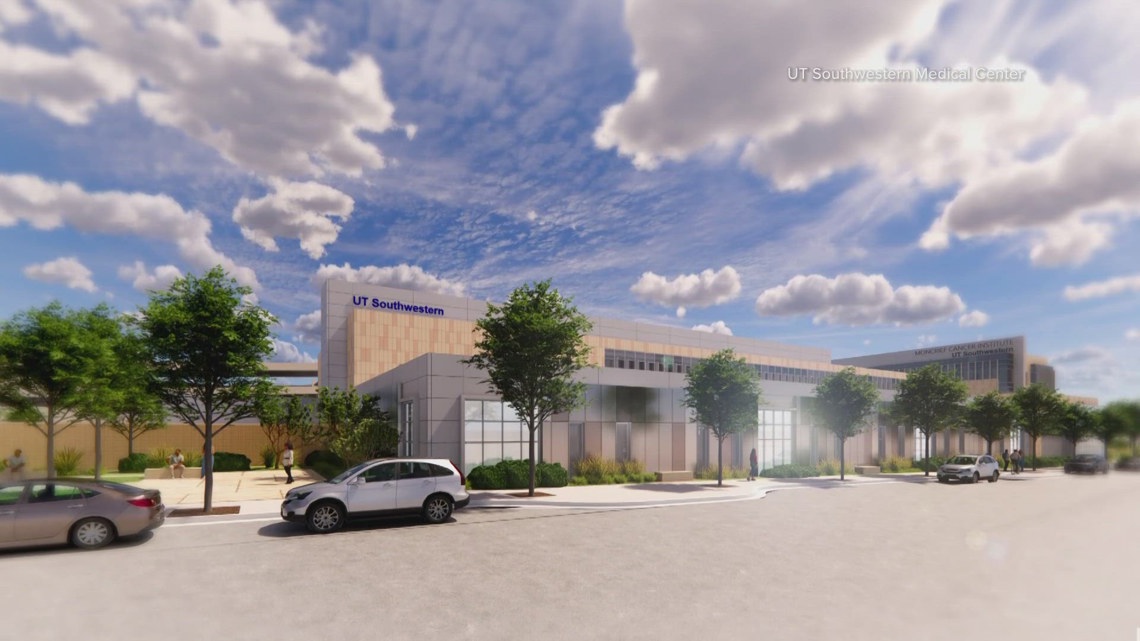
UT Southwestern broke ground in May on a $177 million radiation oncology campus in Fort Worth to meet a growing need for cancer treatment.
The 65,000-square-foot facility in Fort Worth’s Medical District will include the city’s first MRI-guided precision radiation treatment, four linear accelerators to deliver precise radiation treatment and space for two more, and a fully-equipped brachytherapy suite to provide high-dose radiation treatments for patients with prostate or gynecologic cancers.
The campus is projected to open in 2028 and will be connected to UT Southwestern’s Moncrief Cancer Institute in the city’s Medical District.
Construction also began earlier this year on a new $5 billion pediatric health campus coming to Dallas’ Southwestern Medical District, the Dallas Business Journal reported.
The pediatric health complex will be located on more than 33 acres at the corner of Harry Hines Boulevard and Paul Bass Way and will reportedly replace the existing Children’s Medical Center Dallas.
What about rural hospitals?
John Henderson of the Texas Organization of Rural & Community Hospitals recently warned that a third of the 157 rural hospitals in Texas have less than 10 days’ cash on hand.
In a letter to President Trump, Senate Majority Leader John Thune and House Speaker Mike Johnson, Senate Democrats cited hospital data from the Cecil G. Sheps Center for Health Services Research at the University of North Carolina that said 338 rural hospitals — including at least 15 in Texas — are at risk of closing after the passage of Trump’s tax and spending bill.
